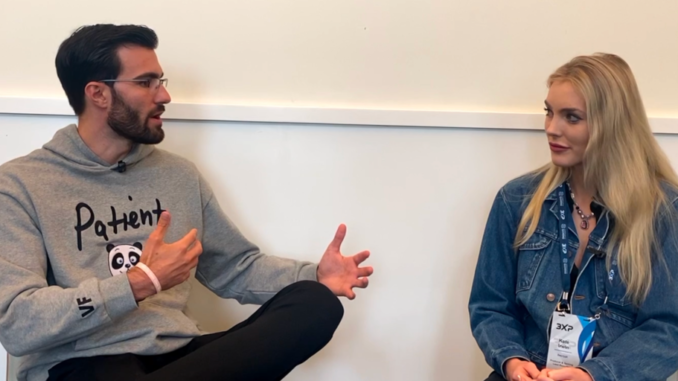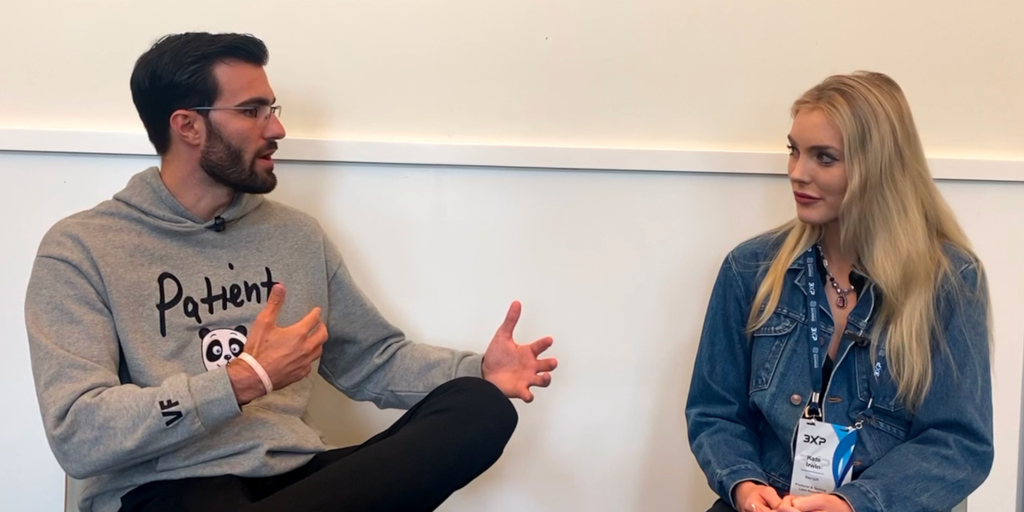
[ad_1]

This story comes from GG. Your Web3 Gaming Power-Up
Discover GG
Gamers have been broadly skeptical of the prospect of NFTs and tokens in video games, due in part to factors like fervent market speculation, wild price fluctuations, scams, and a fear that publishers will simply use Web3 elements to extract even more value from them.
That’s made it challenging both for indie upstarts making NFT games and major game publishers exploring the space. Likewise, it’s been a hurdle for streamers and content creators that have gravitated towards the crypto world, but may be having trouble reaching viewers with messaging that doesn’t always land well with the gaming audience.
In an interview at the 3XP conference, Darren Glover, VP of Gaming at talent management agency VaynerSports, said that Web3 content creators should focus on social platforms where relevant audiences already exist and flourish—and to avoid leaning too hard into the “Web3” of it all.
“Make content on TikTok, Snapchat, YouTube Shorts, and Instagram Reels—be a normal content creator,” he told Decrypt. “You’re just playing and creating content around games that happen to be Web3, but don’t over-Web3 it.”
“Stay away from tokens,” added Glover, who represents Web3 gaming content creator Bryce “Brycent” Johnson, along with a pair of popular Fortnite players—Cody “Clix” Conrad and Kyle “Bugha” Giersdorf.
In order to accelerate growth, he believes that creators should refrain from using jargon and complex crypto and NFT terminology with their content, especially in the opening moments—so as not to detract interest or lose engagement of the audience.
“I don’t think anybody would agree that NFTs have a great sentiment around them right now,” Glover explained. “So if you’re using content [and] within the first six-and-a-half seconds, you’re saying ‘NFT,’ and then you’re also complaining that your content isn’t performing… well, it’s like: Look in the mirror.”
Emphasizing the need to be “entertaining, trustworthy, and informative” above all before expanding content to the Web3 niche, Glover noted that “there are hundreds of thousands of games on Steam,” providing plenty of opportunity for content creators to find appealing games to hook viewers.
As for the challenges of breaking into the industry, Glover believes that “there’s a lack of understanding” around the profession. Some see the job as people just playing video games all day, yet there are many examples of prominent content creators burning out due to the grind and expectations. Besides that, it can take creators years to amass a steady following.
“Being a content creator is very difficult. You can’t just flip the switch and make it a full-time job tomorrow,” Glover said. “When you hear the successful ones that get brought up, they’ve been doing it for 8-10 years.”
Decentralized streamers
Popular streaming platform Twitch received overwhelming backlash this month after it announced plans to alter its content branding guidelines. Twitch said that it would disable the ability for creators to embed sponsorship logos and banner offers on their streams, potentially limiting their earning potential. The platform swiftly reversed course on that decision after a community outcry.
Yesterday, we released new Branded Content Guidelines that impacted your ability to work with sponsors to increase your income from streaming. These guidelines are bad for you and bad for Twitch, and we are removing them immediately.
— Twitch (@Twitch) June 7, 2023
Glover believes that decentralized streaming platforms can provide an alternative solution for content creators who are wary of the current centralized leaders, but decentralized players need to refine their narratives to attract the masses. The first step, in his view, is to stop using crypto jargon.
“Nobody cares about that. Good technology and innovation happens when the product is just more efficient,” he said. “I can’t sell you on something if I’m using words that have a negative sentiment to you, regardless of your perspective and point of view.”
Even so, given the Twitch backlash and other potential downsides to relying on centralized platforms, Glover sees a window for decentralized alternatives to flourish in time.
“Tomorrow, Twitch could just say: ‘We’re going out of business, see you later,’ and you lose everything that you had on there,” he said. “However, [with] these decentralized, blockchain-built streaming community-based platforms, you own your community, so to speak. You can take them off-chain with you, which is huge.”
“How are they not capitalizing on what’s happening?” he continued, referring to the Twitch backlash. “I think it’s a marketing and a narrative issue, not a product issue. It’s how you’re communicating the product—that’s the issue.”
Stay on top of crypto news, get daily updates in your inbox.
[ad_2]
Source link



